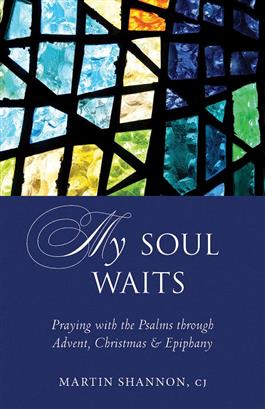My Soul Waits is a devotional for Advent, Christmas, and Epiphany. Combining the words of the Psalms and meditations from the Church Fathers, it guides the reader through the various twists and turns on the journey to our Lord’s Nativity.
Aaron and the Levitical priesthood were instructed to bless the people of Israel with these words: “The Lord bless you and keep you: The Lord make his face to shine upon you, and be gracious to you: The Lord lift up his countenance upon you, and give you peace” (Num. 6:24–26). Psalm 67 is a prayer of blessing that comes out of the same tradition. It sees the blessing of God as the very source of life and health, without which there is no hope for prosperity or peace.
 A rich tone of thanksgiving is prevalent throughout the psalm, and this probably explains why it was used at the great autumn Feast of Sukkot, or Tabernacles. The feast is significant for two reasons. First, according to Exodus 34:22, it celebrates the “ingathering” of the harvest, the annual sign of God’s blessing in the fruitfulness of the fields. “The earth has yielded its increase,” declares the psalmist (Ps. 67:6), and in that plenty is seen the face of God. Second, the feast is a reminder of the Israelites’ sojourn in the wilderness (Lev. 23:39–43), during which God “made the 7 people of Israel dwell in booths,” or Sukkot, temporary huts built of branches and leafy boughs, as they made their way from one camp to another on their trek from Egypt to the Promised Land.
A rich tone of thanksgiving is prevalent throughout the psalm, and this probably explains why it was used at the great autumn Feast of Sukkot, or Tabernacles. The feast is significant for two reasons. First, according to Exodus 34:22, it celebrates the “ingathering” of the harvest, the annual sign of God’s blessing in the fruitfulness of the fields. “The earth has yielded its increase,” declares the psalmist (Ps. 67:6), and in that plenty is seen the face of God. Second, the feast is a reminder of the Israelites’ sojourn in the wilderness (Lev. 23:39–43), during which God “made the 7 people of Israel dwell in booths,” or Sukkot, temporary huts built of branches and leafy boughs, as they made their way from one camp to another on their trek from Egypt to the Promised Land.
Together with a spirit of celebration, therefore, the brief verses of Psalm 67 confess a sense of utter dependence of the people of Israel—of all the nations, indeed of all the earth—on the favorable presence of God. As the psalmist says elsewhere about all created life, “When you give it to them they gather it up; when you open your hand, they are satisfied with good things. When you hide your face, they are terrified; when you take away their breath, they die and return to the dust” (Ps. 104:28–29, NIV).
In his rule for the monastic community, Saint Benedict prescribed Psalm 67 to be sung every morning at daybreak, the rising sun being an apt image for the radiant and life-giving face of God. Morning after morning, the day is prayerfully greeted by monks with this simple acknowledgment and petition: “Like the rising sun, O Lord, may your face shine upon us this new day, and bring us life. Bless us with the warmth of your presence and we, in turn, will reflect that blessing to others and we will praise your name forever.” A prayer for God’s blessing is never contingent upon dire circumstances, illness, or misfortune. It is appropriate to every day of our lives, for every day of life given to us is an act of God’s mercy and favor.